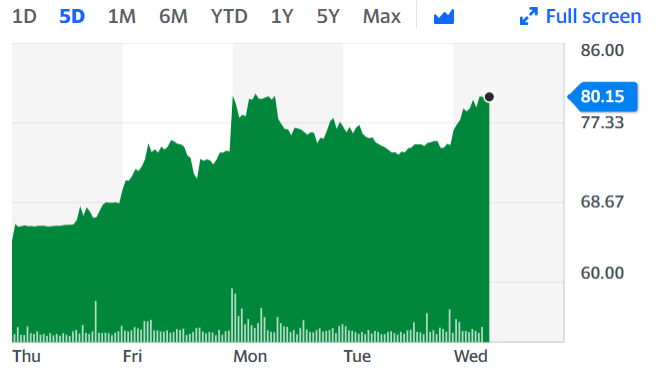Stagecoach profits fall 92% as Brits shun buses during pandemic
Bus and coach operator Stagecoach (SGC.L) saw its profits plunge 92% after it took a beating as demand slumped in the face of the COVID-19 pandemic.
Despite the news, shares are soaring, up 8.4% at around 10.45am in London.
The FTSE-listed (^FTSE) business saw profit fall to £5.4m ($7.2m) for the half-year ended 31 October 2020, down from £65.9m over the same period last year, according to the company’s earnings report published on Wednesday.
“While the [COVID-19] situation remains fluid, we have made progress in the restoration of our networks to close to pre-COVID levels and in growing passenger volumes safely,” said Martin Griffiths, Stagecoach group chief executive.

Demand for public transport has faltered as more people have either stayed home or opted to travel in cars to avoid getting COVID-19, forcing bus operators to make dramatic cuts.
READ MORE: Ports chaos hits firms' supplies as Honda forced to halt production
During the height of the pandemic in March, the Confederation of Passenger Transport reported that passenger numbers had fallen by 50%, with revenues for the industry plummeting by $50m (£37m) per week, which undermined businesses ability to pay the wages of nearly 100,000 drivers and support staff.
The industry called for the government to guarantee budgeted sources of income for bus and coach operators and to support up to 80% of staff costs. That would allow operators, including Stagecoach, to “maintain routes vital for taking NHS staff and other key workers such as refuse workers, cleaners and supermarket staff to their places of work.”
Stagecoach furloughed some of its staff earlier this year, but state that 'most have now returned to work.' Its peers have also been forced to make programme changes as less people were taking public transport due to the pandemic, including Arriva also cutting bus services, making it difficult for hospital workers to get to and from work.
Stagecoach said it is also focusing on a post-pandemic world, welcoming “the UK, Scottish and Welsh government’s' recognition of the importance of bus and tram services, as evidenced by the sector-specific actions they have taken to support the continuation of vital services during the COVID-19 pandemic,” according to Griffiths.
The business said it will focus on ensuring public transport networks are adapted to new working and travel patterns in a post-COVID world.
It is exploring partnership opportunities and new commercial initiatives globally, including being short-listed for bus contracts in Sweden and in Dubai.
WATCH: What is a V-shaped economic recovery?

 Yahoo Finance
Yahoo Finance 